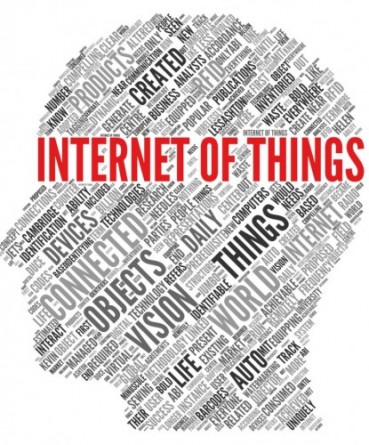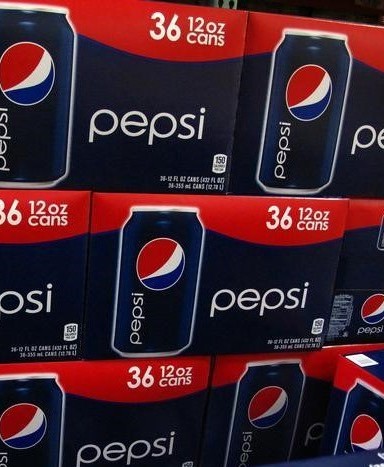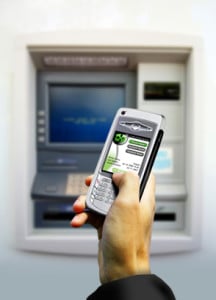Find out the week’s top mobile stories from around the world.
This week.. Blackberry wants to own mobile privacy, auto-insurers using IoT to monitor drivers, Pepsi to launch a smartphone in China plus much more…

BlackBerry aims to own mobile security and privacy
Computer Weekly
BlackBerry plans to get back to its enterprise security and privacy roots, according to the company’s chief operating officer (COO) Marty Beard.
“We are in the midst of a significant turnaround at BlackBerry,” he told the GoodExchange Cyber Security Summit 2015 in London.
An important part of any turnaround is to stabilise the company and make money, according to Beard. Now, with more than $3.5bn in cash, BlackBerry is able to think and act strategically.
Read more…
Auto insurers are using the Internet of Things to monitor drivers and cut costs
Business Insider
Auto insurers like Progressive, Allstate, and State Farm are using the Internet of Things (IoT) to monitor drivers’ habits, including changes in speed, how often they drive, and the time of day they drive. For insurance firms, the expectation is that this will lead to lower costs through a better ability to assess clients’ risk levels. For consumers, this means better premium rates — assuming they drive well.
The most prevalent way of monitoring driving habits is by using On Board Diagnostic (OBD-II) dongles, or plugs, that send analytics about the driver’s driving habits back to the insurance company. The dongles are plugged into the car’s port under the steering wheel. We estimate that there are 155 million cars currently on the road in North America that are compatible with OBD-II dongles, and this number will grow as cars from prior to 1996 are pulled off the road and replaced by new models.
Read more… (report)
Get ready for Pepsi’s first smartphone, launching soon in China
Venturebeat
PepsiCo said on Monday it is working with a licensing partner to market a line of mobile phones and accessories in China in the next few months.
The food and beverage company however has no plans to get into the mobile phone manufacturing business, a PepsiCo spokeswoman said by email.
“Available in China only, this effort is similar to recent globally licensed Pepsi products which include apparel and accessories,” the spokeswoman said.
Read more…
Mobile banking to exceed 1B users by end of year: report
Mobile Commerce Daily
Banking from a smartphone has now become accepted on a global scale, with one in five adults worldwide leveraging mobile finance services, according to a new report from Juniper Research.
The amount of customers using mobile devices to control their finances will exceed one billion users this year, now that the technology has become so widely accepted and banking lends itself to a much more convenient experience through untethered technology. Juniper predicts that by the year 2020, two billion customers will be leveraging mobile for banking.
Read more…
Indian startups on track to raise $5 billion in funding: Nasscom
Times of India
Indian startups are on target to get a whopping $5 billion (Rs 32,558 crore) funding by this year-end, IT industry body Nasscom said in a report on Tuesday.
“Total funding in the India-based startups is estimated to be around $5 billion by 2015, which is a massive 125% growth from $2.2 billion in 2014,” National Association of Software and Services Companies said in a report.
Overtaking Israel, India has emerged as the third biggest startup market worldwide after the US and Britain, with 4,200 startups, growing 40% over 2014.
Read more…
University of Cambridge study finds 87% of Android devices are insecure
Ars Technica
It’s easy to see that the Android ecosystem currently has a rather lax policy toward security, but a recent study from the University of Cambridge put some hard numbers to Android’s security failings. The conclusion finds that “on average 87.7% of Android devices are exposed to at least one of 11 known critical vulnerabilities.”
Data for the study was collected through the group’s “Device Analyzer” app, which has been available for free on the Play Store since May 2011. After the participants opted into the survey, the University says it collected daily Android version and build number information from over 20,400 devices. The study then compared this version information against 13 critical vulnerabilities (includingthe Stagefright vulnerabilities) dating back to 2010. Each individual device was then labeled “secure” or “insecure” based on whether or not its OS version was patched against these vulnerabilities or placed in a special “maybe secure” category if it could have gotten a specialized, backported fix.
Read more…
Only 24% of IT pros are proactive when it comes to wearable security
Fierce Mobile
If you’re an IT professional and nervous about the influx of wearable technology in the workplace and the security and management implications that come with that, you’re not alone.
Ipswitch, a Massachusetts-based software company that also specializes in research and development, polled 288 IT workers [.pdf] in the U.S. on the state of wearable tech in their businesses.
According to the survey, 53 percent of respondents said that they see workers wearing technology around the office, while 61 percent of those surveyed are most worried about security breaches that could result from wearable use.
Read more…
Low-power, dumb devices forecast to take IoT off cellular networks
Telecoms.com
The M2M industry is dumbing down, according to a report, which says low power, unintelligent devices are taking over the conversation on the Internet of Things.
The revelation comes in a report by Beecham Research, which claims that traditional cellular networks have ‘dominated the market for M2M connectivity’ but that ‘this is about to change’.
The Low Power Wide Area Networks for IoT Applications Market Report and Forecast identifies a new genre emerging, Low Power Wide Area Networks (LPWANs). These are set to become increasingly popular because they are capable of far wider ranges of M2M and IoT applications and are less constrained by either budgets or logistics such as the distance from a power source.
Read more…
Square files for IPO after establishing itself as pioneer in mobile payments
Guardian
Financial-services startup Square plans to go public.
Founded in 2009 by Twitter co-founder and CEO Jack Dorsey, Square has been a pioneer in mobile payments. Its white cube square readers plug into the headphone jack of smartphones and tablet computers so the devices can become electronic sales terminals, allowing millions of merchants to accept credit cards.
It filed for an IPO that was valued at up to $275m, according to a form filed on Wednesday with the SEC. That figure could change.
Read more…
Death to passwords! New Yahoo Mail protects with push notifications instead
PC World
Yahoo began its assault on the password in March with SMS-based two-factor authentication, and now the company wants to finish what it started. On Thursday, Yahoo announced Yahoo Account Key, a password-less method of logging in to Yahoo Mail that will roll out to other Yahoo services in the coming months.
Account Key effectively works like two-factor authentication, allowing you to authorize new logins via your smartphone or tablet. The only difference is Account Key is not a secondary back-up measure that kicks in after you’ve entered your password: it is the primary way you access your account.
Yahoo’s approach doesn’t rely on the user entering a code received from an authenticator app or SMS. Instead, when you try to log in to Yahoo Mail a notification gets sent to your mobile device without entering a password.














